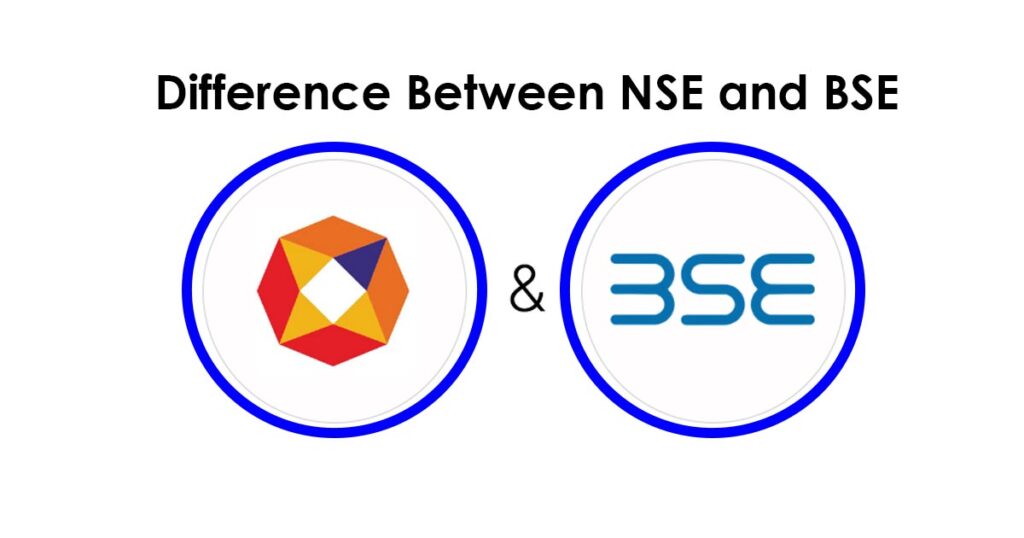
What is NSE?
National Stock Exchange (NSE) is one of the major stock exchanges in India. Established in 1992, it brought transparency, efficiency and technological advancement to the Indian capital market. NSE operates as a public limited company and provides various investment opportunities to the market participants.
What is BSE?
The Bombay Stock Exchange (BSE) is the oldest stock exchanges in Asia, established in 1875. It has played a significant role in shaping the Indian capital market. BSE operates as a corporatized and demutualized exchange, and continues to be an important platform for investors.
Similarities between BSE and NSE stock exchanges:
- Both NSE and BSE are recognized stock exchanges in India.
- They provide electronic trading platform for seamless and efficient trading.
- Companies listed on any exchange are regulated by the Securities and Exchange Board of India (SEBI).
- Both the exchanges maintain indices such as BSE Sensex and NSE Nifty to monitor market performance.
Difference between BSE and NSE:
Establishment and History: BSE is the oldest exchange, while NSE is relatively new, having been established in 1992.
Ownership and Governance: BSE is owned by various institutions and individuals, while NSE is a demutualized exchange without a specific owner.
Trading platform: NSE uses the National Exchange for Automated Trading (NEAT) system, while BSE works on the BOLT trading system.
Indices: BSE Sensex consists of 30 stocks, while NSE Nifty consists of 50 large-cap stocks from various sectors.
Listing Requirements: BSE follows the traditional listing norms, while NSE introduced Emerge platform with easier norms for small and medium-sized enterprises.
How has NSE become more popular than BSE?
NSE’s focus on technology, transparency and market innovation has played a significant role in its popularity. The introduction of advanced trading systems and inclusion of diverse market participants has attracted investors. Additionally, NSE’s initiatives to support small and medium-sized businesses through the Emerge platform have contributed to its growing prominence.
Which platform to choose?
Choosing between NSE and BSE stock exchanges depends on various factors such as individual preferences, investment goals and market research. Both the exchanges offer ample investment opportunities, and investors should analyze their needs and consult financial advisors to make an informed decision.
Establishment and History:
Bombay Stock Exchange (BSE) is the oldest stock exchange in Asia, founded in 1875. It boasts of a rich heritage and has been instrumental in shaping the Indian capital market. On the other hand, National Stock Exchange (NSE) was established in 1992 and is relatively new in comparison to BSE. NSE was formed with the objective of introducing transparency, efficiency and technology-driven trading in the Indian stock market.
Ownership and Governance:
BSE operates as a corporatized and dematerialized exchange owned by various institutions and individuals. In contrast, NSE is a demutualized exchange, which means that it is not owned by any particular entity. It operates as a public limited company, with shareholders representing a wide variety of market participants.
Trading Platform:
Both NSE and BSE provide electronic trading platforms that facilitate efficient and transparent trading. However, they differ in terms of the technology they employ. NSE uses an advanced trading system called National Exchange for Automated Trading (NEAT). On the other hand, BSE employs the BOLT trading system. These systems differ in their architecture and functionality, but ultimately serve the purpose of enabling seamless trading.
Index:
Both the stock exchanges maintain their own indices to track the performance of the listed companies. The benchmark index of BSE is Sensex, which consists of 30 actively traded stocks. The flagship index of NSE is Nifty 50, which consists of 50 large-cap stocks from various sectors. These indices serve as important indicators of overall market sentiment and performance.
Listing Requirements:
Companies seeking to list on any exchange have to comply with certain listing requirements. BSE follows conventional listing norms, which include profitability criteria and track record considerations. On the other hand, NSE introduced a separate platform called Emerge Platform to cater to the needs of small and medium-sized enterprises (SMEs). The platform has relaxed listing norms, making it easier for SMEs to access capital markets.
To wrap up:
Understanding the difference between NSE and BSE is essential for investors looking to invest in the Indian stock market. While BSE has a rich history and heritage, technological advancements and transparent practices of NSE have made it popular. Investors should carefully consider their investment objectives and conduct thorough research before making investment decisions.
FAQs:
Which is better, NSE or BSE?
The choice depends on individual preferences and investment objectives.
Can I buy in BSE and sell in NSE?
Yes, you can buy stocks in one exchange and sell them in the other.
Why is NSE preferred over BSE?
NSE’s technological advancements, transparent practices, and initiatives like the Emerge platform have contributed to its preference.
Why is the share price different in BSE and NSE?
The difference can arise due to factors such as supply and demand dynamics, liquidity, and market conditions.
What is the timing of BSE and NSE?
Both exchanges operate from Monday to Friday, following specific trading hours.
Can a company be listed in both BSE and NSE?
Yes, a company can choose to be listed on both exchanges if it meets the respective listing requirements.
How does a company get listed on BSE or NSE?
Companies need to fulfill the listing criteria set by the exchanges, including profitability, track record, and compliance with SEBI regulations.






